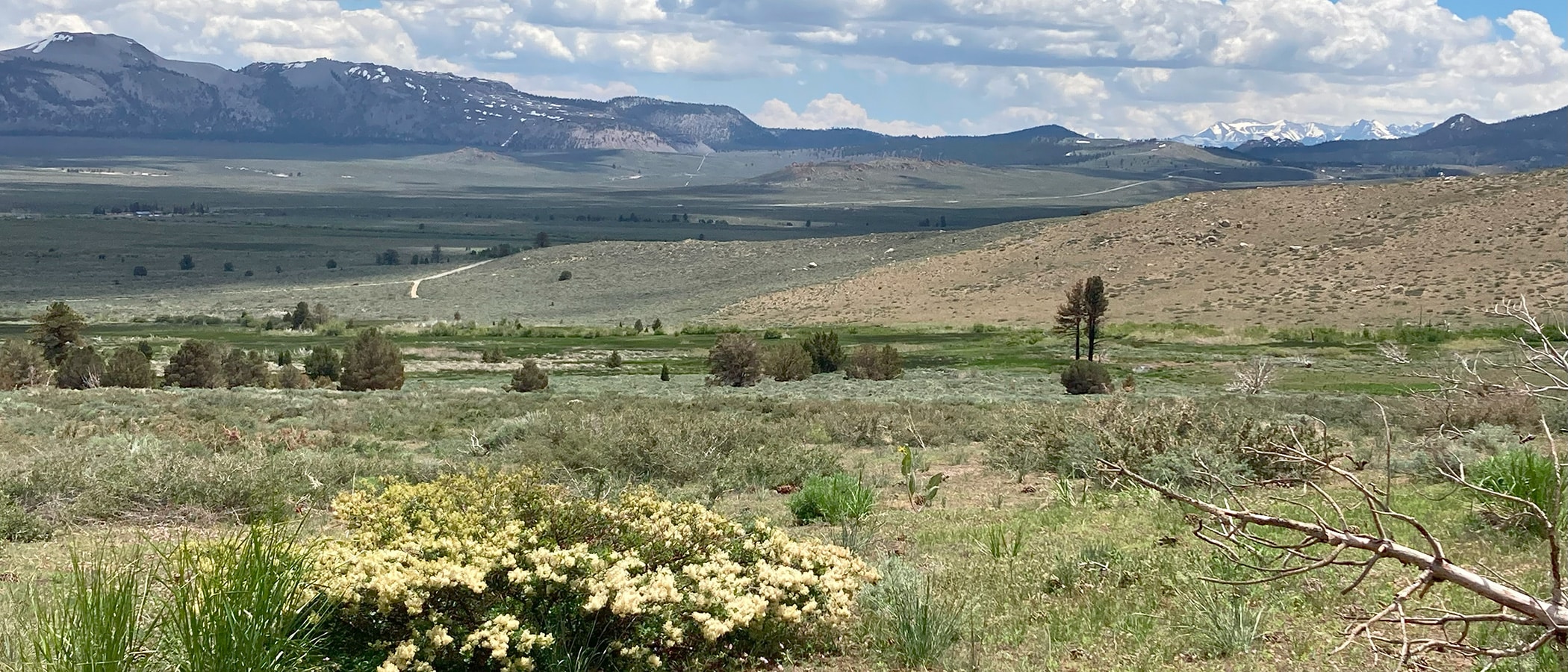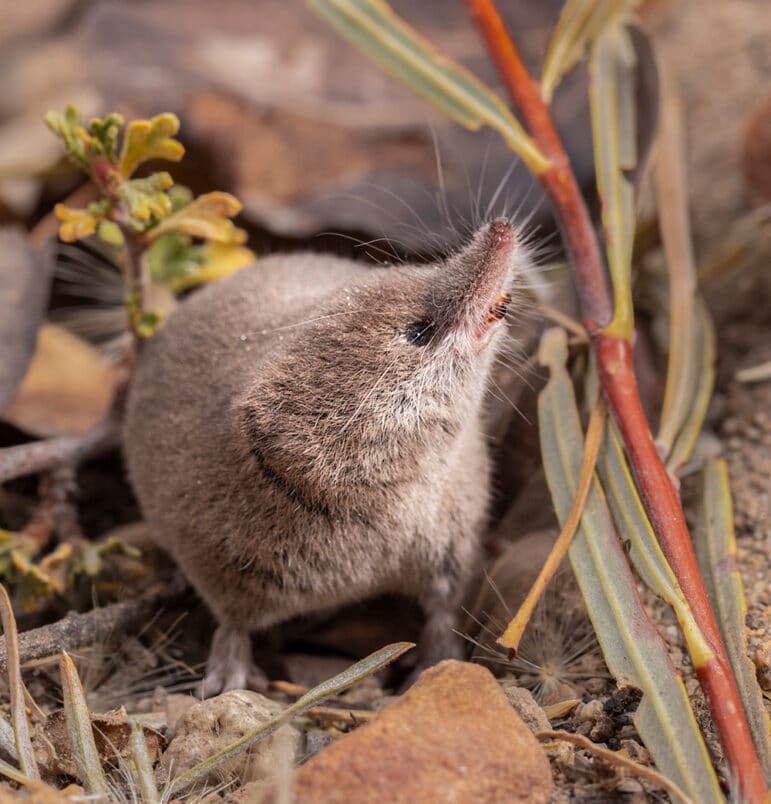
Until last fall, the Mount Lyell shrew (Sorex lyelli) was the only known mammal in California that had never been photographed alive, despite being scientifically identified more than 100 years ago. That changed in November 2024 when three researchers successfully trapped, photographed, videoed, and released the shrew safely in its Mono Basin habitat.

Researchers Vishal Subramanyan, Prakrit Jain, and Harper Forbes, who are undergraduate students and a recent graduate in their 20s, spent three nights camped out near Lee Vining to attempt to trap the Mount Lyell shrew. In the first several hours of setting pitfall traps—plastic cups inserted into holes in the ground, baited with mealworms and cat food—they had captured shrews.
The researchers checked their traps regularly because shrews metabolize food quickly and need to eat every two hours to stay healthy. Under a permit from the California Department of Fish & Wildlife, they photographed the shrews and released them quickly.
Over the three nights, the group captured four species of shrews: the montane shrew, vagrant shrew, Merriam’s shrew, and the Mount Lyell shrew. They took measurements and small bits of genetic material from all 15 shrews they captured, six of which were confirmed to be Mount Lyell shrews.
Subramanyan, Jain, and Forbes are now part of a long tradition of undergraduate researchers conducting important scientific studies in the Mono Basin. In 1976, a group of young undergraduate students received a National Science Foundation grant to conduct the first ecological study of Mono Lake, which confirmed that the ecosystem was in grave danger of collapse due to excessive water diversions. Those students, including David Gaines, went on to found the Mono Lake Committee.
Like the Mono Lake ecological study did for the Mono Basin, the recent better knowledge of the Mount Lyell shrew may help to protect it. It’s listed as a mammal species of special concern and thought to be quite vulnerable to the impacts of climate change on its habitat.
Top photo by Juniper Bishop.
